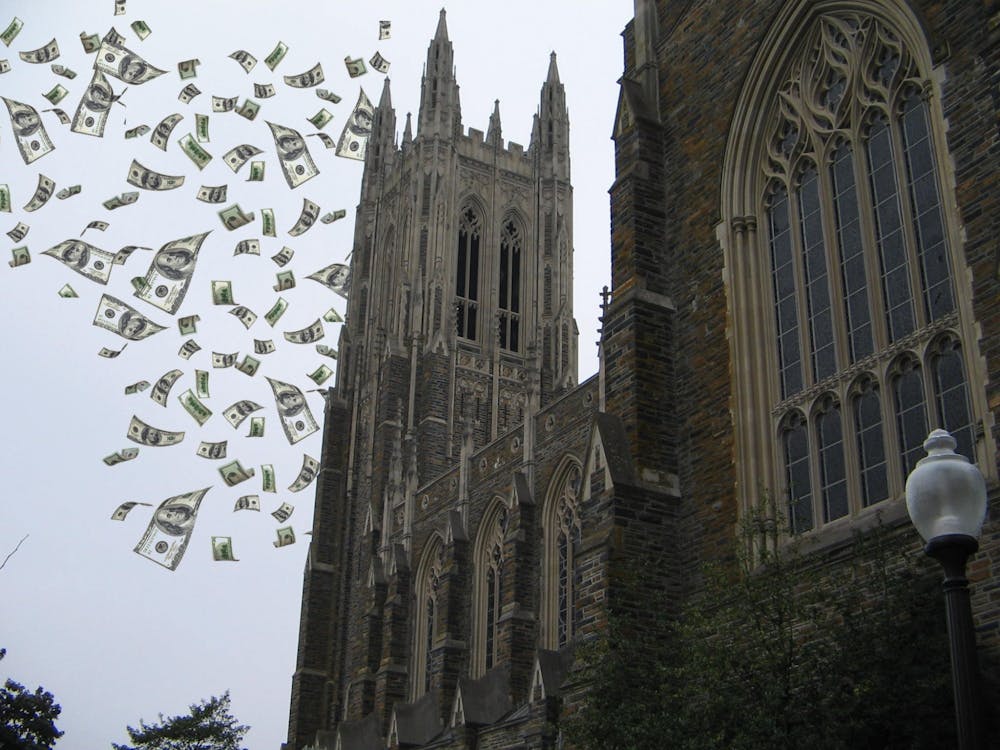Duke was going to receive $6.7 million in federal aid money—and then it said no.
The CARES Act, intended to address the financial impact of the coronavirus pandemic, allocated around $14 billion directly to higher education. Duke joined several other top private universities in rejecting the $6.7 million it would have received.
Michael Schoenfeld, vice president for public affairs and government relations, said that “a lot of” factors went into Duke’s decision, but that the principal issue was “legal and regulatory” problems with taking the money.
“In reviewing what the funds would be used for and also what the requirements were from the government in terms of reporting and ambiguity, we determined that there were some fairly significant legal and regulatory issues that were unclear to us and could have had a significant impact,” Schoenfeld said.
Schoenfeld said the CARES Act’s language “appeared to require all the recipients, even if the money was just going straight through the university directly to students, to make what would have been legally binding commitments about employment.” He added that making these commitments would be “very difficult for any employer to do at this point.”
“It’s unfortunate that funds that were appropriated by the Congress specifically to help students who are in distress could not go to those students simply because of these factors, and some of the political fallout that came from it,” he said.
He also said that one of the factors in Duke’s decision was Secretary of Education Betsy DeVos’ ruling that undocumented students are ineligible for emergency student grants from CARES Act funding.
At least half of Duke’s funding would have been earmarked for emergency financial aid to students. Schoenfeld noted that the University has spend its own money to support students during the pandemic, including starting the Duke Student Assistance Fund.
The fund, to which Duke initially committed $4 million, aims to help undergraduate and graduate students with unexpected expenses they face as a result of the virus.
Other universities reject funding
Harvard University announced April 22 that it would not “seek or accept” $8.6 million in stimulus funding, a move that followed criticism from President Donald Trump and members of Congress. Trump thanked Harvard and other universities for deciding not to accept funding, according to Politico, and Secretary of Education Betsy DeVos spoke out against certain institutions receiving funding.
“Wealthy institutions that do not primarily serve low-income students do not need or deserve additional taxpayer funds. This is common sense,”DeVos said.
Other universities with multi-billion-dollar endowments made similar decisions, according to Politico, including Princeton University and Stanford University.
In a statement to The Harvard Crimson about the decision not to take CARES Act funding, Harvard spokesperson Jonathan Swain wrote that “Harvard, like other institutions, will face significant financial challenges due to the pandemic and economic crisis it has caused.”
“We are also concerned however, that the intense focus by politicians and others on Harvard in connection with this program may undermine participation in a relief effort that Congress created and the President signed into law for the purpose of helping students and institutions whose financial challenges in the coming months may be most severe," Swain added
When it comes to Duke, Junior Jamal Burns argued that other universities’ decisions to reject funding played a role in the University's decision.
“I think the decision comes from pressures of other peer institutions. So you know, once Harvard did it and then Princeton did it, and then people with similar sized endowments started to do it, we felt the need to kind of jump on that bandwagon,” said Burns, who helped found the Duke Mutual Aid Facebook group that provides assistance to members of the Duke community.
When asked whether public pressure played a role in Duke’s decision, Schoenfeld referred The Chronicle to his original statement: that a number of factors were at play but that legal and regulatory concerns were the principal issue. He declined to comment further.
Matthew Griffin contributed reporting.
Get The Chronicle straight to your inbox
Sign up for our weekly newsletter. Cancel at any time.

